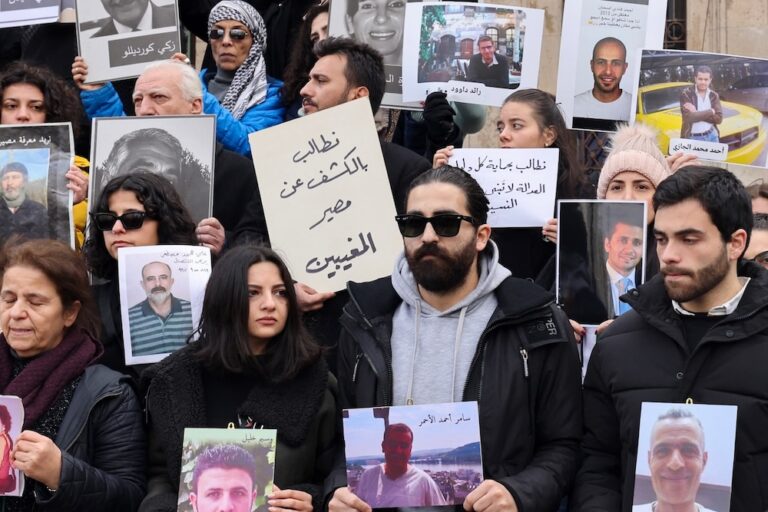(RSF/IFEX) – Chaaban Abboud, correspondent for Lebanese daily “An-Nahar” and the Kuwait daily “Al Ra’i al Aam”, has been released on bail. The journalist was arrested on 2 March 2006 under a 1963 state of emergency law and charged by a Damascus military court with “publishing mendacious reports harmful to national security”. Abboud had written […]
(RSF/IFEX) – Chaaban Abboud, correspondent for Lebanese daily “An-Nahar” and the Kuwait daily “Al Ra’i al Aam”, has been released on bail. The journalist was arrested on 2 March 2006 under a 1963 state of emergency law and charged by a Damascus military court with “publishing mendacious reports harmful to national security”.
Abboud had written an article on appointments within the security and intelligence services, a few days before his arrest.
“All Abboud did was mention reports which are known to everyone and which have already been published on websites run by senior members of the Baath party,” the press freedom organisation said. “The Syrian government continues to use its old repressive methods to prevent the emergence of an independent press. The 1963 state of emergency serves as a pretext for harassing and arresting journalists who dare to criticise the authorities.”
Reporters Without Borders added: “The real reason for Abboud’s arrest was obviously political. “An-Nahar”, one of the newspapers he contributes to, is known for being very critical of the Syrian government and has been banned within Syria for years. The murders last year of “An-Nahar” editorialist Sami Kassir and its executive editor Gebran Tuéni clearly have not made Abboud’s work any easier.”
Abboud was arrested as a result of a report in the 1 March issue of “An-Nahar” about appointments within the Syrian intelligence services. He was taken before a military court under an article in the 1963 state of emergency law providing for the trial of anyone jeopardising state security.
The daily “An-Nahar” said in a statement on 7 March that the “arrest of the journalist was because of routine procedures, following transfers within the security services”. The paper added that “the intervention of journalists and human rights activists helped reduce the bureaucratic steps and meant that the law triumphed in the handling of this case”.


